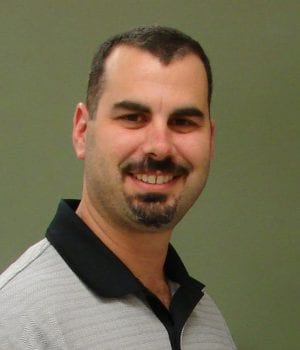University of Central Florida, Department of Biology
National Science Foundation REU Site: Conservation, Restoration and Communication
Dr. Linda Walters (PI) and Dr. Kate Mansfield (PI, co-PI)
Faculty Mentors: Dr. Patrick Bohlen, Dr. Lisa Chambers, Dr. Geoffrey Cook, Dr. Melinda Donnelly, Dr. Robert Fitak, Dr. Christen Fleming, Dr. Michelle Gaither, Dr. Eric Hoffman, Dr. Kelly Kibler (Engineering), Dr. Kate Mansfield, Dr. Anna Savage, Dr. Linda Walters
Program Dates: May 19 to July 26, 2024
Application Dates: December 15, 2023 – February 15, 2024
This Research Experience for Undergraduates (REU) site award to the University of Central Florida, located in Orlando, FL, will support the training of 10 students for 10 weeks, starting in late May, during the summers of 2022- 2024. It is anticipated that a total of 30 students, primarily from schools with limited research opportunities or from under-represented groups, will be trained through this program. The program focus meets a critical national need to train students in the fields of conservation and restoration using cutting-edge tools and techniques. Interwoven into the experience will be science communication training. Students will learn how research is conducted, and many will present the results of their work at scientific conferences. Students will be tracked after the program in order to determine their career paths.
Application
Application Dates: December 15, 2023 – February 15, 2024
You will be notified by mid-March 2024
Applications include:
- Resume/CV, transcripts (unofficial is acceptable)
- Two reference letters with one from a faculty member at your current institution, and one from a person within your circle of support. Family members cannot write the second letter, but it can come from a current or past teacher, coach, clergy member, employer, etc.
- Personal statement describing yourself. This statement may include descriptions of one or more of the following: your background, experience, program eligibility, motivations for applying, career goals, and any challenges faced in the past, present or future related towards attaining your career goals. Please also describe which UCF faculty mentors (up to three individuals) and their research that most appeals to you and why.
Type of student we are looking for:
- We are interested in students who meet some or all of the criteria listed here.
- We seek to support undergraduates who are under-represented in STEM, have just completed their freshman or sophomore years at an institution of higher education and are working toward a 4-year undergraduate degree, have had limited or no previous experience in conservation/restoration field or laboratory research, and who are very excited about the possibility of a career in conservation/restoration.
- Special consideration will be given to veterans, non-traditional students (over 30 years old), students with disabilities, and students who are the first in their families to attend college/university.
What students receive: Award includes $6,000 stipend, food allowance, dorm-style housing, and round-trip travel to Orlando
Faculty Mentors & Research Areas
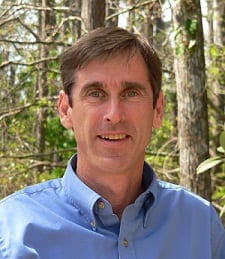
Dr. Patrick Bohlen
Pollinator Ecology & Conservation
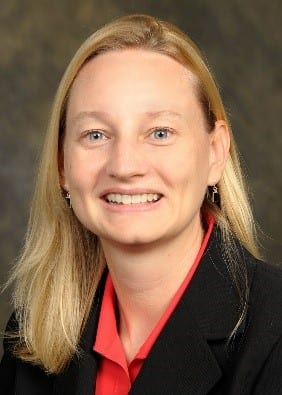
Dr. Lisa Chambers
Coastal Wetlands Biogeochemistry
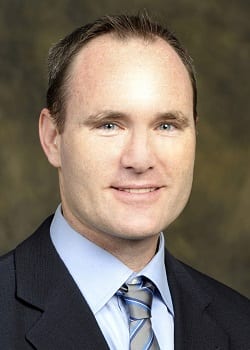
Dr. Geoffery Cook
Fish Population & Community Ecology
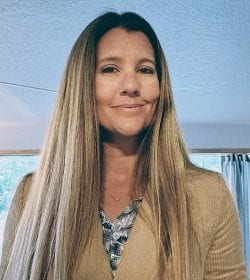
Dr. Melinda Donnelly
Mangrove, Seagrass Conservation & Modeling
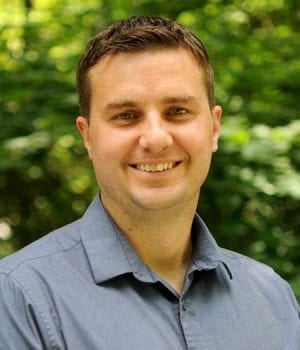
Dr. Robert Fitak
Wildlife Genetics & Genomics
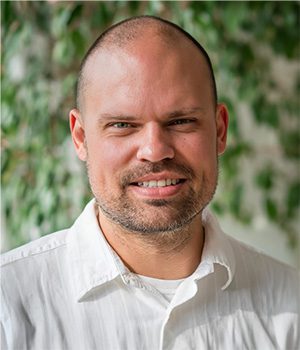
Dr. Christen Fleming
Population Modeling for Conservation
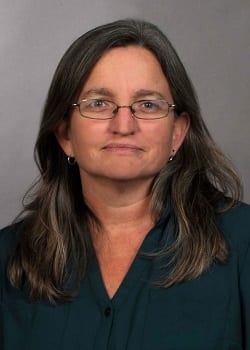
Dr. Michelle Gaither
Characterizing Coastal Communities using eDNA
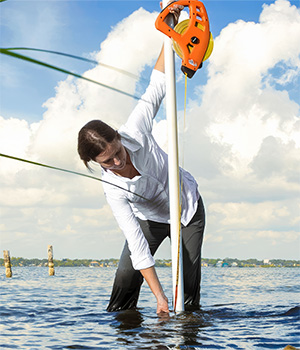
Dr. Kelly Kibler
Ecohydraulics of Coastal Habitats
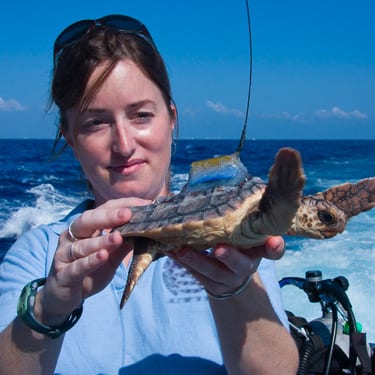
Dr. Kate Mansfield
Marine Turtle Conservation & Tracking
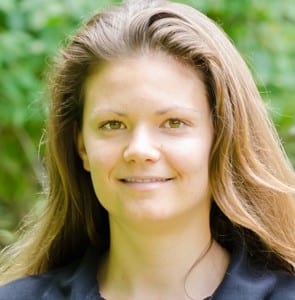
Dr. Anna Savage
Species Delimitation of Andean Frogs
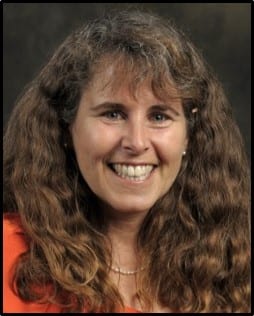
Dr. Linda Walters
Conservation & Restoration of Oysters & Coastal Flora
Mentors Accepting STudents for Summer 2024
Dr. Patrick Bohlen
Research in the Bohlen lab focuses on urban ecology, with an eye toward understanding of factors that affect natural features and biodiversity in urban systems and using that understanding to enhance biodiversity and ecosystem services in urban environments. Current projects in this lab focus on invertebrate ecology in urban systems, including:
- Pollinator ecology and conservation
- Ground beetle diversity in urban systems
Students working in this lab will have an opportunity to skills and experience in: sampling insect populations using standardized field sampling protocols; processing, identifying and archiving collected insect samples; assessing floral quality and resources for pollinators; evaluating habitats and plant communities; basic use of geographic information system (GIS) software; experimental design and data analysis.
Dr. Lisa Chambers
The Aquatic Biogeochemistry Lab led by Dr. Lisa Chambers focuses on understanding natural chemical cycles occurring at the soil-water interface. Through analyzing the properties and processes in wetland soils and shallow sediments, we contribute knowledge on how ecosystems can serve to mitigate global climate change through soil carbon burial and reduce the nutrient pollution that causes harmful algal blooms through microbial transformations. A 2024 REU student will develop a project to investigate either, (1) how dredge spoils may be used beneficially to restore coastal wetlands and protect soil carbon from mineralization, or (2) how soil properties impact ecosystem health and resilience. The student will gain field skills collecting soil samples in wetlands in Florida and laboratory skills conducting bench-scale experiments and soil and water analyses.
Dr. Geoffery Cook
The Marine Ecology and Conservation (MEC) Lab at UCF studies the factors influencing the distribution, abundance, and demographic structure of coastal marine species, with a taxonomic focus on fishes and macroinvertebrates. A 2024 REU student will develop a project under the mentorship of Dr. Cook and MEC lab graduate students exploring fish population or community dynamics (i.e., how they vary spatially and temporally) or quantify their response to coastal habitat restoration. Depending on the specific project and model species selected, the REU student will gain experience in field sampling, species identification, data analysis and scientific writing.
Dr. Melinda Donnelly
Research in the Coastal and Estuarine Ecology Lab (CEELAB) focuses on estuarine habitat restoration in Florida, including coastal wetlands, living shorelines, seagrasses, and oysters. CEELAB’s restoration efforts are science-based and engage the local community to increase awareness and understanding of the importance of these critical estuarine habitats. A REU student for summer 2024 working with Dr. Donnelly will develop a study to evaluate the long-term effects of living shoreline restoration on habitat quality to support the development of a shoreline restoration plan for the state of Florida. The student will have the opportunity to gain experience in field-based research and using ArcGIS for mapping and spatial analysis.
Dr. Robert Fitak
The Fitak Integrative Genomics Lab applies next-generation DNA sequencing and bioinformatic approaches to understand the incredible array of biodiversity and the specific adaptations, physiology, and behavior that make species unique. For Summer 2024, the REU student will work with the mentor to design a project related to one of two key active research areas: 1) genomics of infectious diseases in wildlife, or 2) understanding the relationship between animal movement/navigation and environmental changes. The REU students will learn how to perform basic molecular assays such as DNA/RNA extraction and sequencing, as well as how to analyze data using both bioinformatic and statistical approaches. Although research in the Fitak Lab does not generally involve field work, the technical skills involved in genomic and bioinformatic analyses are rapidly becoming an essential component of interdisciplinary conservation research and management.
Dr. Michelle Gaither
Harmful algal blooms (HABs) are a longstanding problem in Florida. They negatively impact human health, lead to habitat degradation, and cause wildlife mortalities. In response, the state has invested tens of millions of dollars to improve monitoring and mitigation. However, these efforts are contingent on the proper taxonomic identification of species involved and typically depend on visual identification and enumeration via light microscopy. Although still the standard, these techniques have limitations as some species cannot be easily distinguished based on morphological characteristics alone. The Gaither lab is seeking an REU student to work with a UCF PhD student and scientists at the Florida Fish and Wildlife Research Institute (FWRI) to optimize a molecular toolkit for the accurate and efficient detection and quantification of HAB taxa across the state. The REU student will learn the latest molecular techniques and apply these to sampling throughout Florida. The project will involve some field collections and/or a visit to the FWRI office in St. Petersburg Florida to assist with sample collection. Moreover, the student will learn techniques including DNA extraction, real-time PCR, Illumina library preparation, and metabarcoding.
Dr. Kelly Kibler
The Kibler Ecohydraulics laboratory conducts research related to flow-biota interaction in aquatic ecosystems and applies this basic science to the design of green infrastructure for climate adaptation. During the summer of 2024, an REU student will develop an individual project related to characterizing flow and sediment transport in biological canopies (mangrove forest, seagrass beds and/or oyster reef) and discover key hydrodynamic thresholds in habitat suitability for these organisms, which are commonly applied as ‘ecosystem engineers’ in aquatic restoration. The REU student will make observations in the field using cutting-edge hydrodynamic instruments, perform experiments in a sediment recirculating flume, and create numerical hydrodynamic models. Depending on the student’s interest, research questions may range from the basic science of life in moving fluids (how does roughness of an oyster reef create turbulence cues that influence larval dispersal and settlement?) to highly applied and design-oriented questions (design of a habitat mosaic to mitigate erosion and flood hazards).
Dr. Kate Mansfield
Dr. Mansfield leads the UCF Marine Turtle Research Group (UCF MTRG) comprised of three field-based research programs: 1) a sea turtle reproductive biology monitoring program; 2) an in-water netting project examining foraging ecology, health, and demographics of large juvenile turtles; and 3) a theoretical and empirical project examining the movements and behavior of offshore, oceanic dispersal stage turtles. Mansfield’s Florida field sites are located on the Archie Carr National Wildlife Refuge and surrounding coastal habitats. One student will be selected to participate in all aspects of the lab’s work and gain a rare opportunity to work with federally protected species. Example REU projects may include (but are not limited to) (1) examining satellite telemetry data to determine habitat use and seasonal movements of sea turtles across life stages and habitats; (2) exploring the physiological tradeoffs sea turtles experience across life stages by quantifying body temperature and behavior relative to available sea temperatures; or (3) examining the long-term (1980s to present) spatial sea turtle nest distributions and reproductive output relative to abiotic/environmental factors on the nesting beach (e.g., predation, incubation temperature, beach renourishment, beach erosion, and salt water inundation).
Dr. Anna Savage
Research in the Savage lab utilizes genomics and disease ecology to understand the evolutionary trajectories of reptile and amphibian populations facing emerging infectious diseases. REU student(s) joining the lab in summer 2024 will develop a project focused on invasive pathogens in snake species of the southeastern United States. Specifically, they will identify infections with pentastome lung parasites that were introduced to Florida with Burmese pythons, and now infect over a dozen native snake species. Students will conduct field work, necropsies, and museum preparation of roadkill snakes, including venomous species. They will also use molecular and morphological methods to identify presence and severity of pentastome infections. This work will allow the student to formulate their own hypotheses about the host-pathogen system and add to a broader effort to characterize the threat of this pathogen to native snakes.
Dr. Linda Walters
Dr. Walters and the Coastal & Estuarine Ecology Lab focus on understanding, conserving, restoring, and documenting the success of restoration for a variety of foundational species (oysters, mangroves, marshgrasses, seagrasses) along Florida’s east coast, primarily within the boundaries of Canaveral National Seashore. Equally important to this research is community engagement. The REU student selected for summer 2024 will have the opportunity to participate in all aspects of coastal restoration, research, and monitoring. Additionally, a project of interest to the REU student will be developed that focuses on: 1) testing new biodegradable restoration materials for oyster reef restoration, 2) assisting with a virtual reality study with community volunteers to increase the likelihood they will continue to participate in restoration efforts, or 3) using wildlife camera traps to determine use of restored areas by threatened/endangered wading birds and small mammals. The student will gain experience in boat-based field research, data collection, data analysis, and scientific presentations.
2024 Summer Projects
- Generating Genomic Resources for Four Conservation Relevant Species – Kerissa Tarpley
- How Soil Organic Carbon Pools Differ Between Natural and Created Wetlands – Raina Clements
- Assessing Dietary Overlap and Trophic Relationships of Two Generalist Sportfish in Florida – Reagan Oller
- What Influences Citizen Science Observations of American Bumblebees Visiting Flowers in Florida? – Helen Tarrau
- Examining the distribution of juvenile green turtles (Chelonia mydas) in a man-made basin – Whitney Maxfield
- Quantifying Clay Removal Efficiency of the Red Tide Karenia brevis – Ivett de la Rosa
- Monitoring the Viability of Samples for Metabarcoding – Stephanie Lievano
- Categorization of Boat Wake Risk to Shorelines of Florida Estuarine Lagoons – Winter Seppala
- Un-earthing Connections: A Temporal Analysis of Shoreline Biodiversity – Rowan Wyss
- The Influence of Prey Base on Invasive Raillietiella orientalis Infection Prevalence in Native Snakes – Myzell Amaro
- Biological assessment of Northern Indian River Lagoon Restoration Suitability Model in Canaveral National Seashore – Maura Collins
- Macro- vs Micro-: Examining Novel Bio-degradable Restoration Materials – Otis Woolfolk
2024 Student Publications
Peer-reviewed journal publications associated with this award to date. REU author student names are both bold and underlined.
-
Sharkey E, Onorato DP, Roelke-Parker ME, Ochoa A, Culver M, and Fitak RR. 2024. Prion gene sequencing in Florida panthers (Puma concolor) suggests no differential susceptibility to transmissible spongiform encephalopathy. Journal: Journal of Wildlife Diseases.
- Chambers, L.G., Mirabito, A.J., Brew, S., Nitsch, C.K., Bhabha, J.H., Hurst, N.R. and Berkowitz, J.F. 2024. Evaluating permanganate oxidizable carbon (POXC)’s potential for differentiating carbon pools in wetland soils. Journal: Ecological Indicators.
2023 Summer Projects
- Assessing the Net Advantage of Living Shoreline Restoration on the Ecological Success of a Novel Restoration Method for the seagrass Halodule wrightii.
- If You Plant It, Will They Come? Attracting Pollinators to Suburban Neighborhoods.
- Created Intertidal Oyster Reef Affect Sediment Transport on a Living Shoreline.
- Fighting the Red Tide: Quantifying Karenia brevis in Sediment.
- The Use of Dredge Spoils to Promote Carbon Stabilization in Coastal Wetlands.
- Clockwork Warblers: Understanding the CPNE4 Gene, and its Influence on the Avian Species.
- Does Habitat Restoration Restore the Feeding Habits of Fish? An Investigation into Trophic Recovery Using Gut Content Analysis.
- Thriving Together: A Multi-Habitat Approach for Coastal Restoration that Uses Both Oysters and Seagrass in the Indian River Lagoon.
- Tiny and Spiny: The Hidden Frog Diversity of a Southern Ecuadorean Mountain Forest.
- My Introduction to Population Genetics: Investigating the Genetic Diversity of the seagrass Halodule wrightii in the Indian River Lagoon.
2022 Summer Projects
- Novel Biodegradable Oyster Reef Restoration Materials Tested for Efficacy in the Indian River Lagoon
- Spongiform Encephalopathy Risk in Florida Panthers: Assessing Variation in the Prion Protein
- Terpene Diversity in Cultivated Sunflowers
- Investigating Active Carbon Pools in Coastal Wetlands
- Inferring juvenile oceanic sea turtle diets using stable isotope analysis
- Non-uniform Coastal Sediment Transport: A Laboratory Study
- Indirect Effects of Compost on Pollinators in Suburban Native Plant Landscapes
- Otternomics: The Evolutionary History and Genetic Diversity of L. Canadensis
- Assessing Variance in Photosynthetic Efficiency Across Native American Landraces of Helianthus
- Genetic Investigation into the Origins of Cuban Tree Frog Invasions in Central Florida and New Orleans
- An Optimized Protocol for Detecting Invasive Lionfish (Pterois volitans) with Environmental DNA
- Evaluating the Toxic Effects of Common Sunflower Terpenes using Vanessa cardui
The scientific focus of this REU Site is the conservation and restoration of diverse taxa (e.g., sea turtles, oysters, mangroves, frogs, honeybees, wading birds, captive bred species in zoos, etc.) and ecosystems (oceans, beaches, estuaries, wetlands, etc.) with a focus on Florida. Human activities often seek to improve natural systems through conservation and restoration. Limited understanding of these processes, however, makes success difficult. University of Central Florida’s Biology Department is home to many experts in these ever-expanding fields. Our REU mentors combine field data collection with cutting-edge laboratory research (e.g., eDNA, metabolomics). This REU program focuses on inquiry-based research projects developed by students with support from their mentors. Directly connected to both conservation and restoration is communication. Students participating in this REU will enhance their communication skills with the goal of each student developing a science identity by the end of summer. Professional development training is designed to remove common barriers to success; workshops include ethics and responsible conduct of research, career choices and job shadowing opportunities, how to navigate graduate school admissions, and time management.
More information about the program is available by visiting https://academicsuccess.ucf.edu/reu, or by contacting the PI (Dr. Linda Walters at linda.walters@ucf.edu) or the co-PI (Dr. Kate Mansfield at kate.mansfield@ucf.edu).

